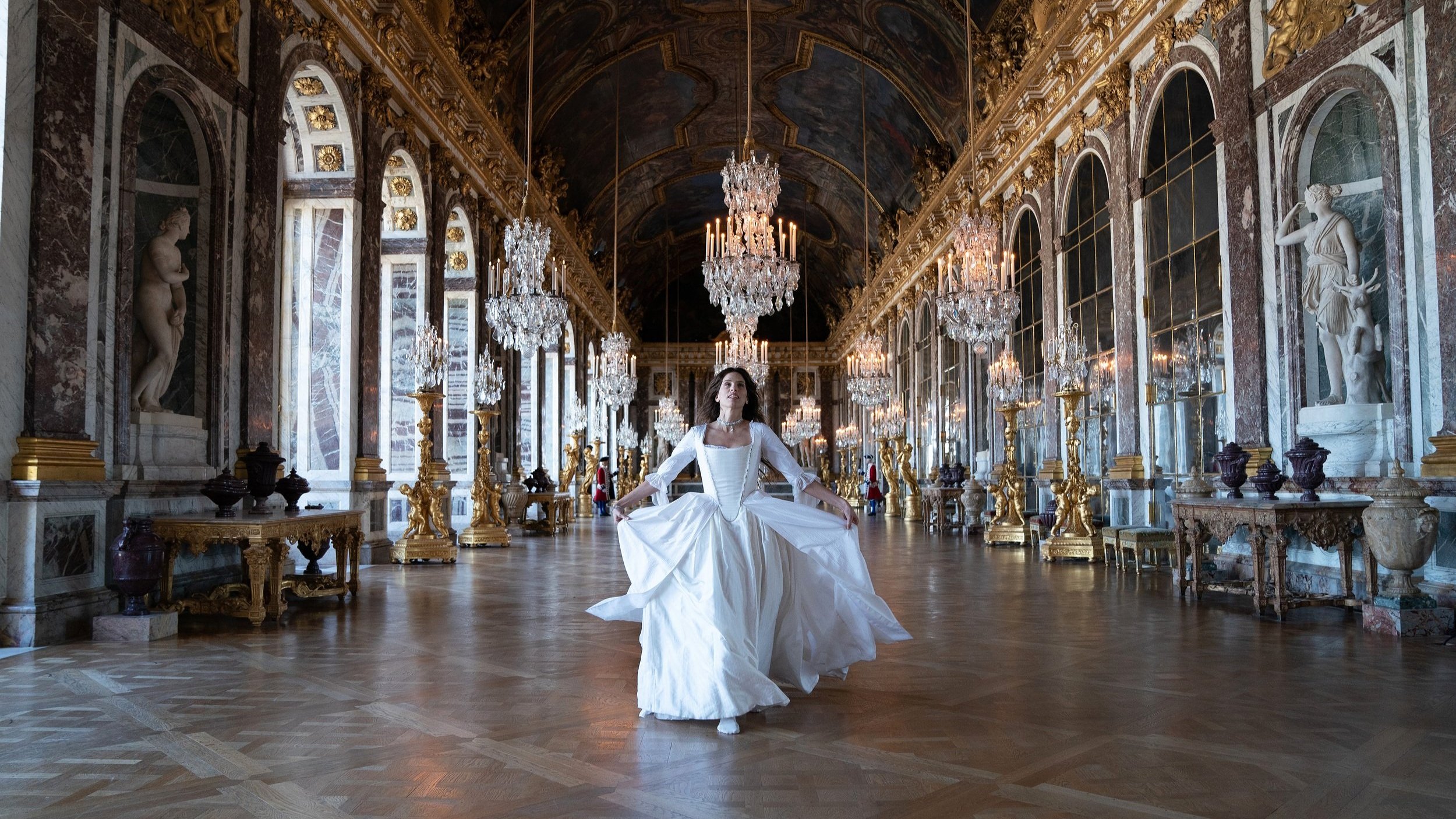Jeanne du Barry
Johnny Depp plays King Louis XV of France in Maïwenn’s opulent, well-played historical drama.
This is a film that has had a rough passage ever since its premiere at the 2023 Cannes Film Festival for which it was the opening film. Any work selected for that spot carries an assumption that it has something special to offer and it must be admitted that Jeanne du Barry, the latest feature to be directed and written by the French actress Maïwenn, hardly lives up to that. But there's quite a lot going for it all the same, including its production values which certainly count when the story that you are telling is an 18th century historical drama taken from real life.
It could well be that some of the more hostile reviews were influenced by two specific factors, one being that the French may have been angered that Maïwenn had chosen Johnny Depp of all people for the role of Louis XV and the other being disapproval of a film made today but presented in a very traditional way. Given that the 2011 feature Polisse, a gritty contemporary view of life in Paris as reflected through the work of the Child Protection Unit, remains Maïwenn’s best-known film, critics may have been expecting Jeanne du Barry to look at history through more modern eyes. In passing one notes that Marie Antoinette as played by Pauline Pollmann has a subsidiary role here and that brings to mind Sofia Coppola’s 2006 film about her which, marked by anachronistic elements, was widely admired although not by me.
Having said that, I should stress that, even if the style of filming here is decidedly old-fashioned, that does not mean that the film lacks a voice that belongs to today. The main focus in Jeanne du Barry is indeed on the time when Jeanne was the favourite mistress of King Louis XV, was housed at Versailles and later given her own château at Louveciennes. But the story is told very much from her viewpoint rendering her rather than Louis the main figure. An offscreen narrator describes her at the outset as somebody who came from nothing but was ready for anything and we first see her being brought up by her mother who was a maid but she is soon reading banned books and becoming involved with boys. It might have led just to low-class prostitution but instead she and her mother went to Paris and Jeanne was soon on course to be a courtesan in high society eventually - and not entirely by chance - capturing the eye of the king. To achieve this, it was necessary for her to attract the right men, but Maïwenn’s film presents her as somebody intent on forming her own destiny as a deliberate escape from the conditions of her youth and in doing this she exhibited an independent spirit. Nor is it by chance that the film emphasises her positive stance towards the young Bengali slave named Zamor gifted to her by the king. Making him her page boy, she, like one of the king's daughters, Louise (Capucine Valmary), seeks to treat him as an individual human being despite others widely regarding him as a mere menial.
As a French period piece Jeanne du Barry presents a persuasive picture of life in Versailles in the 18th century and the film is quite ably played by its French cast. As for Depp, he makes a persuasive Louis XV and as part of that he plays his role using the French language (this is a subtitled film). Maïwenn’s portrayal of court life with its rules of etiquette and its class-conscious spectacle is handled with just the right degree of mockery in that it invites one to view that age critically but without resorting to exaggeration to achieve that. The music score by Stephen Warbeck adds to that sense of balance and Laurent Dailland’s colour photography is a further asset.
There is certainly enough to appeal to viewers who enjoy tales featuring royalty and opulent period settings but in one not unimportant aspect Jeanne du Barry does fall short. However conniving its heroine may be and however Louis XV in his sixties may lack the appeal expected of a lover, the film does come to suggest that theirs was indeed a love story. Nevertheless, we do not feel the passion that is supposed to exist. Is this due to a lack of chemistry between Maïwenn and Depp or to Depp in particular failing to suggest depth of feeling? It could be, but I felt throughout that it was the screenplay that failed to express this persuasively rather than any fault in the acting. Whatever the cause, I found myself entirely unmoved by the fate of these lovers. Nevertheless, as a film that convincingly summons up a past age Jeanne du Barry has much to offer that is well-judged including the quiet but engaging performance of Benjamin Lavernhe as the king’s valet, a servant of the system but a sympathetic and helpful guide to our heroine.
MANSEL STIMPSON
Cast: Maïwenn, Johnny Depp, Benjamin Lavernhe, Melvil Poupaud, Pierre Richard, Pascal Greggory, Pauline Pollmann, Robin Renucci, Marianne Basler, Diego Le Fur, Thibault Bonenfant, Noémie Lvovsky, Micha Lescot, Loli Bahia, Emma Kaboré Dufour, India Hair, Suzanne De Baecque, Capucine Valmary and the voice of Stanislas Stanic as narrator.
Dir Maïwenn, Pro Pascal Caucheteux and Grégoire Sorlat, Screenplay Maïwenn, Teddy Lussi-Modeste and Nicolas Livecchi, Ph Laurent Dailland, Pro Des Angelo Zamparutti, Ed Laure Gardette, Music Stephen Warbeck, Costumes Jürgen Doering.
Why Not Productions/France 2 Cinéma/France 3 Cinéma/ La Petite Reine/Impala Productions/Les Films du Fleuve/Les Films de Batna/IN.2-Miracle/Wildcard/IN.2 Film.
117 mins. France/Belgium/UK/Russia/Saudi Arabia. 2023. US Rel: 29 September 2023. UK Rel: 19 April 2024. Cert. 15.


